PCC and RKC, Revelations on the Journey to Greater Strength and Function, Interview, Chris Worth
By Adrienne Harvey, SrPCC, RKC-TL, CK-FMS
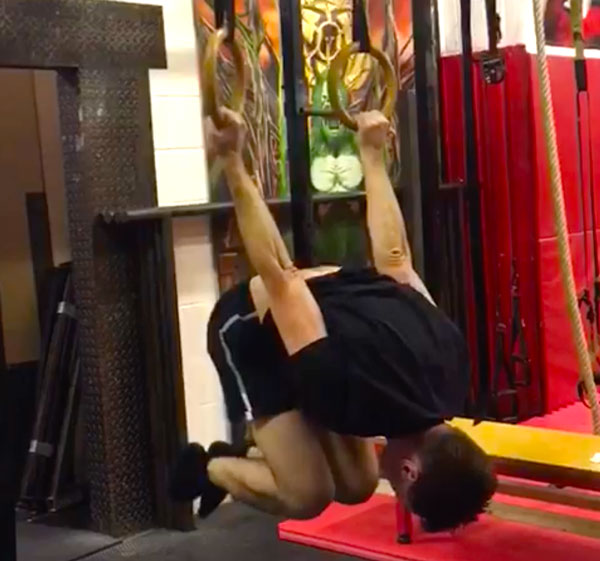
Dragon Door: What inspired your interest in calisthenics and
Convict Conditioning?
Chris Worth: About 10 years ago I was very much into Triathlon—and almost competitive at one point! I enjoyed the running, the cycling, and the swimming—but kept getting the same series of sprains, pulls, and twists down the left side of my body. Eventually I had to stop because the injuries weren’t healing. I was trim and fit, but not healthy and strong!
Then I took a year off for an MBA, and was so busy that I didn't do anything fitness wise for a while. Hitting 40, I noticed weight piling on—for the first time in my life—and started to think it might be too late to change or if I should bother.
Of course, such negative thoughts are the reason so many people
are overweight! And it’s ridiculous—I wasn’t an old man and didn’t feel like one. So, I tried a lot of different fitness programs like P90X. But I have a fairly short attention span and didn’t really enjoy any of them.
Four years ago I picked up
Convict Conditioning. I forget where I first heard of it, but I was instantly hooked by the logical, structural, sequenced aspect to it. I started right at the bottom with wall pushups and shoulder stands. After a few months, I realized it had become part of my life—it wasn’t just something that petered out after a few weeks of excitement. I also realized that the persistent injuries down my left side were dissolving fast! Three months into
Convict Conditioning, I was moving better than I had in years.
Convict Conditioning is a very good program, and it changed my life in another, even bigger way. At the time, I was struggling to find a structure for a book that I was writing about effective freelance working. (I’ve been a freelance copywriter for many years.) I discovered the principles of Progressive Calisthenics—deliberate actions in logical sequence, clear milestones to level up, wash rinse and repeat—gave me the idea I needed to finish my book! It was a real lightbulb-over-the-head moment.
Then I started reading
Convict Conditioning 2, and saw these strange guys on the cover with beards and tattoos from Brooklyn. By sheer coincidence, I saw they were coming to London to deliver a course inspired by Paul Wade’s ideas. Of course, that’s the Dragon Door PCC! The venue—famous strength gym, The Commando Temple—was practically on my doorstep. So I made a commitment to take and pass the PCC.
Seven months later I attended the workshop, and experienced the awesomeness of the
Kavadlos’ coaching first-hand. Even though I didn’t pass on the day of the test, I got there a few months later—and I probably learned more on a single day of the
PCC than in years of reading books about fitness. Earning the PCC certification wasn't a professional qualification for me, it was a personal stretch goal to improve myself.
Soon after, my own book was published! It’s called
100 Days, 100 Grand, and is available on Amazon and in bookstores. 2017 was a great year.
Dragon Door: Of the big six from
Convict Conditioning, which move has been your most favorite so far?
Chris Worth: I love
pull-ups, simply because they’re a real challenge and every bit of progress feels fantastic. Part of my work involves statistical research, and I saw some figures from an American study of 18,000 adults that reported only 3% of men are even capable of doing a pull-up and less than 1% can do three—which is far worse than two generations ago. By completing even three pull-ups, you're already ahead of 99% of the male general population. That’s how bad the developed world’s fitness has become.
At the PCC, I was with people who were not just one in 100 people, but one in 10,000. We had national champions and record holders from several countries in the room. So while I was undoubtedly the weakest man at the course, it just meant I had more opportunity to learn! I had difficulty throughout the course, but it was a very supportive environment. There wasn’t any sort of jock culture or judgment.
Dragon Door: What were the most challenging aspects of the PCC for you?
Chris Worth: Anything that involves inversions. I've always had poor spatial orientation, which might sound strange since I'm also a trained free fall parachutist and scuba diver—not normal activities for people with poor proprioception! So, I have to work a little harder in activities that require eye-hand-body co-ordination. I found my first inversions on the bar scarier than stepping out of a plane at 15,000 feet!
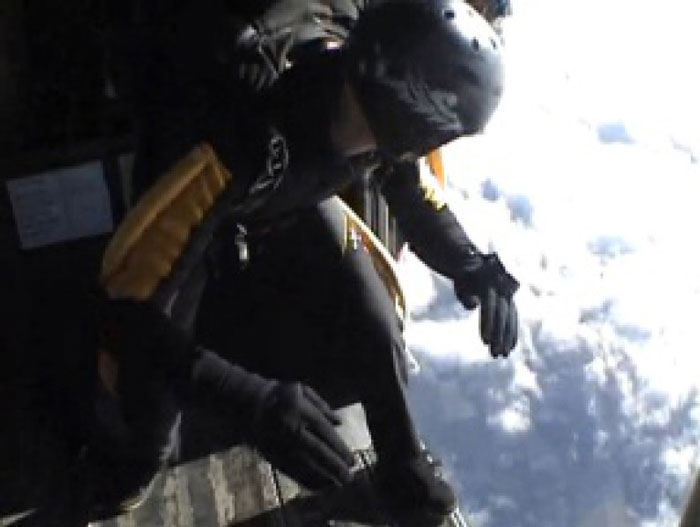
Now I do skin-the-cats every day and have lost the fear of being upside down—all because of methods learned at the PCC.
Dragon Door: After the PCC workshop, since you didn't pass on the day of the test, what was your approach which ultimately helped you pass The Century Test?
Chris Worth: I started training with one of the coaches who assisted at the course,
Fitsz Dubova. He's been my personal trainer and he’s terrific. I'd never had a personal trainer before, and found that the density of what I learn in a session is ten times greater than when I was limping along with a book. After three months of fairly hard training, I passed the test without problems.
Since passing, my training has been to maintain myself.
Passing The Century Test was a great goal and I want to maintain that level of fitness. I’ve also been training for the RKC after certifying as an HKC in November.
Dragon Door: What inspired you to get the HKC, and now the RKC?
Chris Worth: I wanted to see if I could develop the same passion for kettlebells that I’d developed for calisthenics. In terms of spatial orientation, lifting an offset weight carries some challenges. I happened to be in NY in the same week that Coach Fury was teaching an
HKC, so signed up! I had a fantastic time and learned a huge amount. It might seem strange for a non-fitness professional to take these courses, but there’s an old adage: the best way to learn something is to learn to teach it.
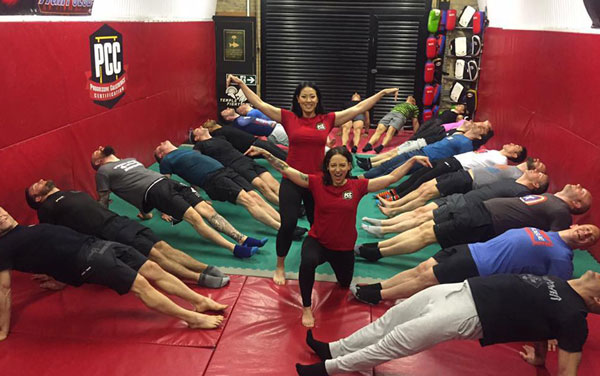
Dragon Door: Kettlebells and calisthenics together are incredibly powerful. What inspired you to consider the RKC, and how was your experience at the workshop?
Chris Worth: I knew after my HKC that an
RKC would be a stretch. But that’s a great reason to try it! To put it bluntly, I’m a lucky guy who’s never had to work that hard at anything to enjoy a great life. So self-improvement is something I have to impose on myself with external commitments, like booking a course on a specific date. If I hadn’t passed my PCC, I’d have felt I let
Al and Danny down. I’ll feel the same about the RKC Snatch Test, and that which motivates me to pass it!
And as you say, calisthenics and kettlebells make a terrific combination; they complement each other. So I really, really wanted to make
kettlebells a bigger part of my life. Secondly, I’d met so many inspiring people at the Kavadlos’ PCC, I couldn’t resist meeting even more at an RKC. It didn’t disappoint.
Again held at the Commando Temple, Dan John, another legendary fitness name led my RKC. His reputation is well-deserved: not just for the sheer depth of his knowledge, but the way he can put it into context for an audience.
Dan John can turn raw data into compelling stories that teach without you realizing you’re being taught. In a past millennium, Dan would’ve been the tribe storyteller or shaman.
At a course, I look for "revelations," those searing insights that suddenly hit you and make you think, AH! NOW I GET IT! When I tried my first bottom-up press with only a
16kg kettlebell, I suddenly felt flooded with euphoria. I walked over to Dan John and said, "Dan! I just realized WHY WE LIFT!" I’ve never hoisted a
barbell in my life, but in that moment I understood why lifting is a passion for so many.
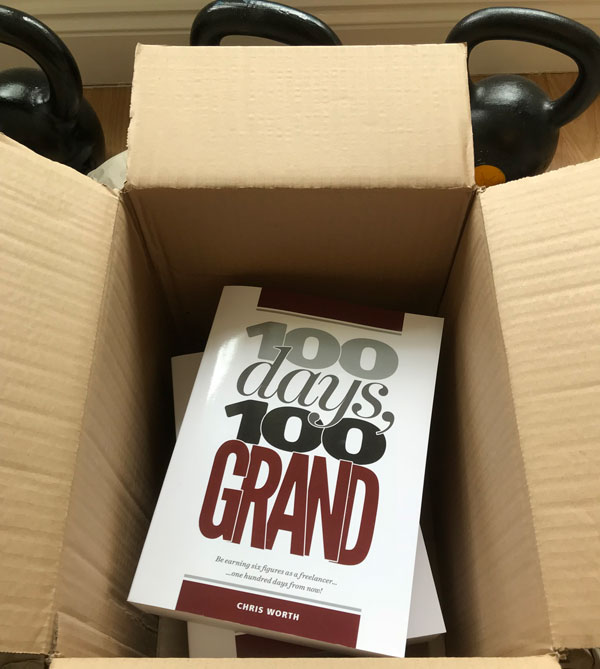
Notwithstanding Dan’s coaching, the RKC was hard, and I never planned to pass at the workshop. But the knowledge has completely changed my approach for the next few months. I’m now working up to the RKC Snatch Test standard by regressing to simpler one-handed moves like cleans before putting the whole thing together again. I now expect to reach the standard in 90 days, using what I learned at the course itself!
For me, this is the real strength of the PCC, HKC, and RKC. It’s learning how to self-program and self-critique—to see what’s working and what you need to change based on observed data. It’s improved my optimism, motivation, and general wellbeing as well as physical strength. That’s why I call the PCC and RKC truly life-changing. They give you the feeling that you’re in full control of your body and its potential, filling every day with fun and energy.
Dragon Door: Going back a little bit, you mentioned that the structure of Convict Conditioning helped you finish your book. Did the progression of the Big 6 influence the structure of your book, or the structure of how you approached writing your book?
Chris Worth: Very directly, the structure of the book. Which is perhaps surprising since it’s not a book about fitness!
I’m a freelance copywriter who used to work for big advertising agencies. For many years I did pretty well. But four years ago three clients went away within a space of a month—clients I’d had for years. Suddenly I was high and dry; during that very bad year, my income dropped by about 90%. Which wasn't much fun, because I was newly engaged, and my future parents-in-law—who are incredibly hardworking and successful immigrants who started from nothing—were looking at their potential son-in-law somewhat askance.
I needed to get back on top, fast. So I started thinking about what I’d done well during the
good years. How had I marketed myself, how had I built relationships with clients? I ended up with a huge stack of notes, but it wasn’t until I read
Convict Conditioning that I realized my methods weren’t a textbook but a
workbook—a workbook that documented what to do every day, with tasks and checklists to follow. This also looks very similar to a training program! Over time you will build yourself, your abilities, and knowledge into a business process for becoming a successful freelancer.
Like
Convict Conditioning, it has actual numbers and progression standards for each milestone. Testing the methods, I discovered that it would take about three months for a freelancer to reach a six-figure income from a standing start. In London, only the top 3% of freelancers are making six figures, £100,000—doesn’t that sound like the pull-up statistics?
So, the sections of the book are kind of like the master moves in
Convict Conditioning, and the daily tasks within each section are the ladders.
You level up every day by doing a little more—and the tasks get a little harder when you’re ready for them.
Dragon Door: Do you have a progression standard or test for passing to the next level?
Chris Worth: Oh, yes! The book is organized into 100 chapters in 10 sections. You read one chapter each day, then do the various tasks—the "sets and reps" for your brain at the end of each chapter. You need to hit the targets at the end of each day before you can move forward, and then you’re ready to develop them further. Sound familiar?
Here’s an example: Part Two is focused on finding your "signature move", the freelance offer you’ll love to deliver. But first you need to work on four smaller questions: What do you love? What are you best at? What will customers pay for? And what does the market need? Your signature move is somewhere in the common factors of those questions. So you’ll only find it once you’ve progressed through them.
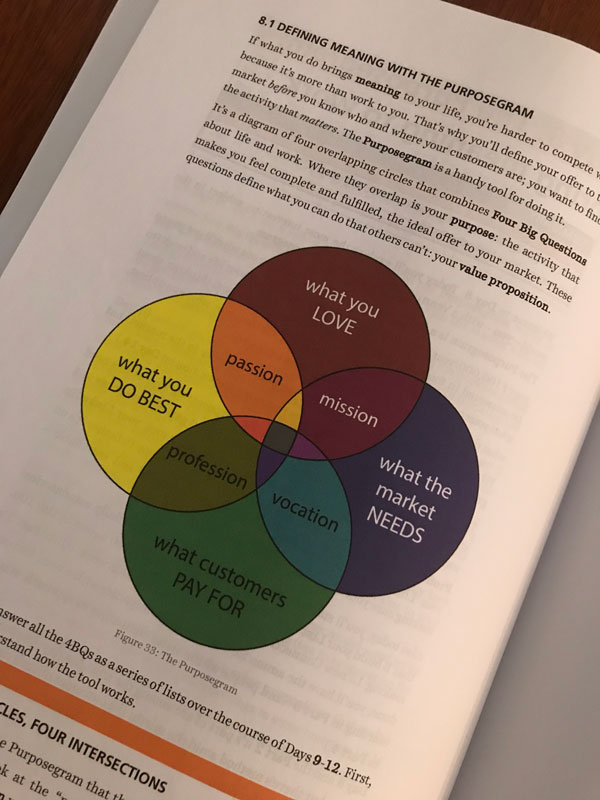
Dragon Door: What is your next goal? What are you working towards right now?
Chris Worth: Along with passing the
RKC Snatch Test, I do have a much longer-term goal. In fact, a life-long one—it’s to "create more problems for myself".
For why, let me go back to my wife’s family. They landed in Britain as rag-clad refugees after years of war-torn strife, and suffered more years of pain dealing with a new culture and language. Yet today they’re all successful professionals, and consider themselves
lucky to have had those hardships! My father-in-law is an amazingly happy guy; nothing ever worries him. He retorts, "When you spent years escaping Communists with guns, everyday problems seem easy."
That’s the answer: address your biggest challenges, and everything else seems easy. So my goal is to try something I find genuinely difficult—like the PCC or RKC—every year. With the aim of being healthy and happy at 100 years old, by taking full responsibility for my own health. Far too many deskbound workers think wellbeing is about curing disease, when it’s about
establishing health. Decrepitude doesn’t come from aging, it comes from disuse! Use that body, and it’ll answer every goal you’ll ever have.
Dragon Door: Your choice of certifications is definitely compatible with that goal!
Chris Worth: Yes, and that’s the key: learning from the best. Even though the HKC, PCC, and RKC courses are positioned as instructor qualifications, they’re of huge benefit to enthusiasts like me. I would recommend them to
anyone who's interested in training.
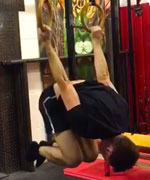 Chris Worth PCC, HKC, is an award-winning international copywriter and the author of workbook for freelancers 100 Days, 100 Grand
Chris Worth PCC, HKC, is an award-winning international copywriter and the author of workbook for freelancers 100 Days, 100 Grand.
Based in London, he creates campaigns, copy, and content for a roster of communications / software / technology companies at his one-man marketing consultancy, Chris does Content.
With interests including philosophy and physics, he’s explored over 50 countries by bus and backpack and has no plans to stop. Visit him at http://chrisdoescontent.com or http://100days100grand.com.
Back